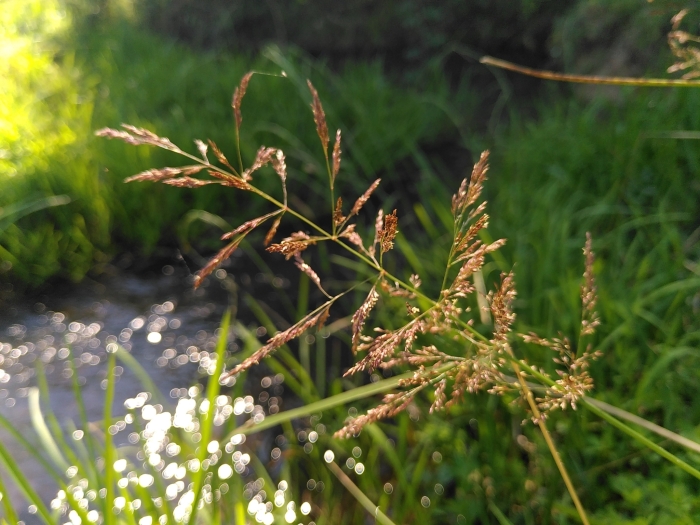Velvety Bentgrass
(Agrostis canina)
Velvety Bentgrass (Agrostis canina)
/
/

© Yves Bas
CC BY 4.0
Image By:
© Yves Bas
Recorded By:
Copyright:
CC BY 4.0
Copyright Notice:
Photo by: © Yves Bas | License Type: CC BY 4.0 | License URL: http://creativecommons.org/licenses/by/4.0/ | Uploader: yvesbas | Publisher: iNaturalist |

























Estimated Native Range
Summary
Agrostis canina, commonly known as velvety bentgrass, brown bent, or velvet bent, is a perennial grass native to a wide range of habitats including meadows, open woodlands, and grassy slopes in Europe and temperate Asia. It has also been introduced to North America, Hawaii, Algeria, and the Kerguelen Islands. This species typically grows up to 30 inches tall and is characterized by its fine-textured, velvety leaves and its ability to form stolons, which are horizontal above-ground stems that take root at the nodes to spread the plant, but it does not form rhizomes. Velvety bentgrass is valued for its fine texture and is often used in lawns, golf courses, and as a ground cover in garden settings.
Velvety bentgrass prefers moist, well-drained soils and can tolerate a range of light conditions from full sun to partial shade. It is relatively easy to maintain but may require regular mowing to keep it at a desirable height. In some regions, Agrostis canina is considered potentially invasive, so it is important to check local regulations before planting it outside of its native range. Its ability to spread via stolons can make it a challenge to control if it escapes cultivation.CC BY-SA 4.0
Velvety bentgrass prefers moist, well-drained soils and can tolerate a range of light conditions from full sun to partial shade. It is relatively easy to maintain but may require regular mowing to keep it at a desirable height. In some regions, Agrostis canina is considered potentially invasive, so it is important to check local regulations before planting it outside of its native range. Its ability to spread via stolons can make it a challenge to control if it escapes cultivation.CC BY-SA 4.0
Plant Description
- Plant Type: Grass
- Height: 0.5-1 feet
- Width: 0.5-1 feet
- Growth Rate: Moderate
- Flower Color: N/A
- Flowering Season: Spring
- Leaf Retention: Deciduous
Growth Requirements
- Sun: Full Sun, Part Shade
- Water: High
- Drainage: Fast, Medium
Common Uses
Erosion Control, Low Maintenance
Natural Habitat
Meadows, open woodlands, and grassy slopes in Europe and temperate Asia
Other Names
Common Names: Brown Top, Velvet Bent Grass, Brown Bent
Scientific Names: , Agrostis canina, Agraulus caninus, Agraulus pallidus, Agrestis canina, Agrostis affinis, Agrostis alba f. aristata, Agrostis alba var. aristata, Agrostis alpina, Agrostis arenaria
GBIF Accepted Name: